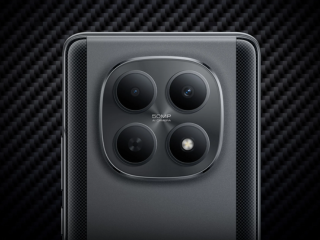- Home
- Science
- Science News
- Deep Space Travel May Damage Astronauts' Gut Functions: Study
Deep Space Travel May Damage Astronauts' Gut Functions: Study

Exposure to galactic cosmic radiation during deep space travel, such as to Mars, might significantly damage gastrointestinal functions in astronauts, say researchers, led by one of an Indian-origin.
The animal-based study also raises concern about high risk of tumour development in stomach and colon.
"Heavy ions such as iron and silicon are damaging because of their greater mass compared to no-mass photons such as x-rays and gamma (y)-rays prevalent on earth as well as low mass protons in outer space," said Kamal Datta, Associate Professor at the Georgetown University in the US.
"While short trips, like the times astronauts travelled to the Moon, may not expose them to this level of damage, the real concern is lasting injury from a long trip such as a Mars or other deep space missions which would be much longer," Datta added.
The gastrointestinal tract is a self-renewing tissue with continuous cell division/proliferation.
The mucosal (top) layer of cells is replaced every three to five days through coordinated migration of new cells from the bottom of a flask shaped structure called crypt towards the lumen of the gut.
"Any disturbance of this replacement mechanism leads to malfunctioning of physiologic processes such as nutrient absorption and starts pathologic processes such as cancer," said co-author Albert Fornace Jr., Director at the varsity's NASA Specialised Center of Research (NSCOR).
For the study, published in the journal PNAS, the team used mouse's small intestine as a model system and exposed mice to a low dose of iron radiation.
They compared the group of mice that received heavy ions to mice exposed to gamma rays, which are comparable to X-rays, and to a third, unexposed control group.
The scientists found that intestinal cells in the heavy ion group did not adequately absorb nutrients and formed cancerous polyps.
Even though a very low dose was delivered over the equivalent of months-long period in deep space, the effects of heavy ion radiation appeared to be permanent, Fornace said.
"It is important to understand these effects in advance so we can do everything we can to protect our future space travellers," Datta said.
Catch the latest from the Consumer Electronics Show on Gadgets 360, at our CES 2026 hub.
Related Stories
- Samsung Galaxy Unpacked 2025
- ChatGPT
- Redmi Note 14 Pro+
- iPhone 16
- Apple Vision Pro
- Oneplus 12
- OnePlus Nord CE 3 Lite 5G
- iPhone 13
- Xiaomi 14 Pro
- Oppo Find N3
- Tecno Spark Go (2023)
- Realme V30
- Best Phones Under 25000
- Samsung Galaxy S24 Series
- Cryptocurrency
- iQoo 12
- Samsung Galaxy S24 Ultra
- Giottus
- Samsung Galaxy Z Flip 5
- Apple 'Scary Fast'
- Housefull 5
- GoPro Hero 12 Black Review
- Invincible Season 2
- JioGlass
- HD Ready TV
- Laptop Under 50000
- Smartwatch Under 10000
- Latest Mobile Phones
- Compare Phones
- OPPO A6 Pro 5G
- OPPO A6s
- OPPO Reno 15 Pro Max
- Honor Win RT
- Honor Win
- Xiaomi 17 Ultra Leica Edition
- Xiaomi 17 Ultra
- Huawei Nova 15
- Asus ProArt P16
- MacBook Pro 14-inch (M5, 2025)
- OPPO Pad Air 5
- Huawei MatePad 11.5 (2026)
- Xiaomi Watch 5
- Huawei Watch 10th Anniversary Edition
- Acerpure Nitro Z Series 100-inch QLED TV
- Samsung 43 Inch LED Ultra HD (4K) Smart TV (UA43UE81AFULXL)
- Asus ROG Ally
- Nintendo Switch Lite
- Haier 1.6 Ton 5 Star Inverter Split AC (HSU19G-MZAID5BN-INV)
- Haier 1.6 Ton 5 Star Inverter Split AC (HSU19G-MZAIM5BN-INV)

















